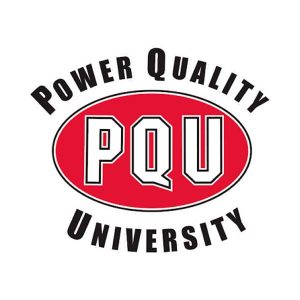UPS Replacement: Avoid Costly Downtime
Your aging Uninterruptible Power Supply (UPS) system is a ticking time bomb, threatening the continuity of your critical operations.
Don’t wait for a catastrophic failure to strike. Proactive UPS replacement is crucial for ensuring the reliability of your backup power and maintaining the integrity of your electrical system.
In this Power Grid post, we will explore the challenges of UPS replacement, guide you in determining when it’s time for an upgrade, highlight the key considerations in the replacement process, and showcase the benefits of modern UPS technology.

The Challenges of UPS Replacement
Replacing an uninterruptible power supply (UPS) system is not as simple as swapping out an old appliance.
Several challenges can arise, making it a complex and potentially disruptive undertaking.
End-of-Life and Obsolescence
As UPS systems age, they inevitably reach their end-of-life. Manufacturers discontinue production of older models, making it difficult to find spare parts and service support. This obsolescence can lead to extended downtime and increased maintenance costs as you struggle to keep your aging system operational.
Complex Configurations
Older UPS systems often have integrated components like maintenance bypasses and output distribution within the same cabinet lineup.
Replacing such systems can be particularly challenging, requiring extensive rewiring and potentially significant downtime.
Critical Facility Concerns
For facilities like hospitals and data centers, where even a brief power interruption can have severe consequences, UPS replacement presents unique challenges.
These critical environments demand meticulous planning and execution to minimize downtime and ensure the uninterrupted delivery of power to essential equipment.

When is the Right Time to Replace Your UPS System?
Determining the optimal time for UPS replacement requires the careful consideration of several factors. When you receive an end-of-life letter from the manufacturer, it’s a clear signal that your UPS system is nearing the end of its supported lifespan.
This means that spare parts and technical support will become increasingly scarce, making it difficult to maintain the system and increasing the risk of a system failure.
Battery Replacement Cycles
UPS batteries have a finite lifespan and typically require replacement every 3-5 years. If your system has undergone multiple battery replacements, it may be more cost-effective to invest in a new UPS system rather than continuing to replace aging components.
Efficiency and Cost
Newer UPS models offer significant improvements in energy efficiency. Replacing an older, inefficient UPS can lead to substantial energy savings and a reduction in your overall operating costs.
Functionality and Capacity
The power demands of your facility may have changed since your current UPS system was installed.
Technological advancements may also have introduced new features and capabilities that could benefit your operations. If your current UPS system is no longer meeting your needs in terms of functionality or capacity, it’s time to consider an upgrade.

Planning Your UPS Replacement: Key Considerations
A successful UPS replacement project requires careful planning and attention to detail. Here are some key considerations:
Choosing the right UPS system is crucial. Consider your current and future power needs, the criticality of your loads, and the desired level of power quality. Look for features like modularity and scalability to ensure your new UPS system can adapt to your changing requirements.
Partnering with a qualified UPS manufacturer and factory-trained service representatives is essential for a smooth and successful installation. Experienced professionals can handle the complexities of the replacement process, ensuring minimal downtime and optimal system performance.
Downtime during a UPS replacement can disrupt operations and impact productivity. Strategies like using a temporary UPS system or carefully scheduling the replacement during off-peak hours can help minimize disruption.
The Benefits of Modern UPS Technology
Modern uninterruptible power supply systems offer a range of advantages over their older counterparts.
- Improved Efficiency: Advancements in power electronics have led to significant improvements in UPS efficiency. Newer models operate with minimal energy loss, reducing your electricity consumption and lowering your operating costs.
- Modularity and Scalability: Modular UPS systems are designed for flexibility and growth. You can easily add or remove modules to meet changing power demands, eliminating the need for costly oversizing or disruptive system replacements in the future.
- Advanced Features: Modern UPS systems come equipped with a host of advanced features, including:
- Remote Monitoring and Diagnostics: Monitor your UPS system’s health and performance from anywhere using remote access capabilities. This enables proactive maintenance and faster response to potential issues.
Power Protection Products: Your Trusted Partner for UPS Replacement Projects
At Power Protection Products (P3), we have the expertise and experience to guide you through every step of your UPS replacement project.
Our team of engineers and technicians will work closely with you to understand your specific needs and challenges, ensuring a seamless and successful transition to a new UPS system.
Our expertise, experience, and commitment to customer satisfaction ensure a seamless and successful transition to a new UPS system that meets your evolving power needs. Contact us today to schedule a consultation and discover how we can help you achieve uninterrupted power protection for your facility.
Contact Power Protection
By investing in Power Protection Products, you can prevent unexpected breakdowns, extend the lifespan of your machinery, and maintain productivity.
Don’t wait for a crisis to take action; protect your assets and ensure continuous operations with a reliable maintenance plan.
At Power Protection Products, we can help you make informed decisions about quality surge suppression solutions tailored to the unique demands of your operation.
The Power Grid podcast is produced by Two Brothers Creative.







 02/19/2026
02/19/2026 12:00 pm
12:00 pm